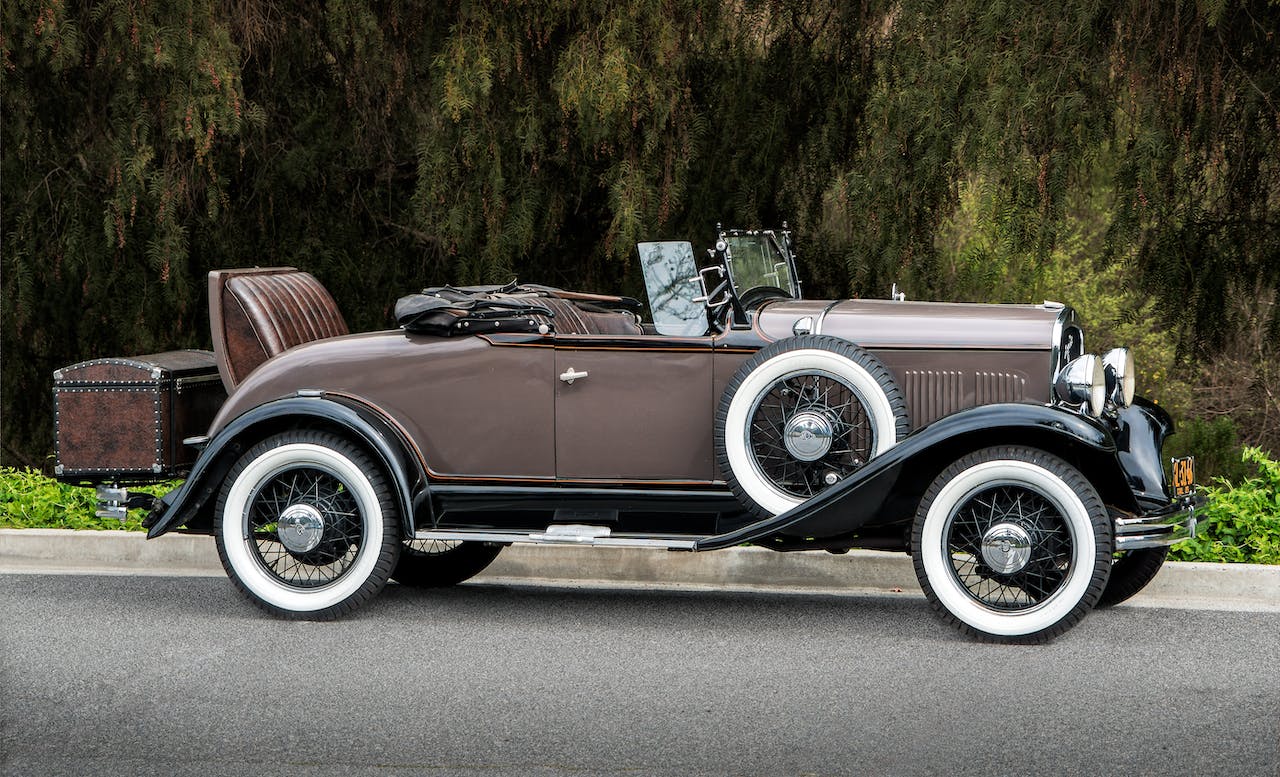If you’re a serious petrolhead, then buying and running a classic car is something that should be on your automotive bucketlist. And do you know the best thing about entering the world of classic ownership? There are plenty of classic cars for sale under the $10,000 dollar mark!
But before you indulge yourself in the car that’s tugged at your heartstrings and made you feel fizzy for years, here’s six things you need to know ahead of parting with your hard-earned cash.
1. Strike a Balance Between Head vs. Heart
For most of us, buying a classic car is an emotionally-driven decision. Perhaps it’s because you had a particular car as part of the family when you were growing up. Maybe it’s because you saw a specific model being thrashed on a race track by your favourite racing driver. It could also be that one special set of wheels featured in a film you love. Whatever your reasoning, you first need to decide on what model you want and be sensible about things. For example, you may love a second generation Dodge Charger Hemi – you know, the one that the bad guys drove in Bullitt – but seriously ask yourself if you really can afford to run the 7.3-litre V8 as well as the keep up with the costs that come with owning a car that’s over 50 years old. If you can, that’s great! If that’s not possible, then perhaps the smaller 3.7-litre V8 would be a more sensible choice.
2. Engage With The Classic Car Community
The classic car community is a helpful bunch and will happily welcome new members into their fold. Online and offline groups provide newcomers with a wealth of information on everything from availability to ownership insights and even spares. Engaging with these communities will help you pinpoint the car that’s best for you, but before you do, make a shortlist of everything you want to find out such as running costs, reliability, and what the car is generally like to live with. If you’re considering classic cars from the 70s, you may also ask them for some reviews. Regularly reading magazines dedicated to classic car ownership will also help winnow down your buying choice. If you are searching for Ford Mustang for sale, join Facebook groups to see discussions of owners.
3. Explore Your Buying Options
There is a whole variety of ways into classic car ownership. Secure online platforms for buying classic cars, these platforms will connect you with private sellers and specialist dealers across the globe. Auctions – both online and offline – are also a way of exploring the world of classic cars. However, be aware. Auctions get competitive and you will need to properly know the ins-and-outs of the classic you’re looking for. Whatever avenue you decide is best for you, you can be sure that you can explore your car and ask the seller any questions you have. Reputation travels far in the classic car community, so you can take heart from the fact that your purchase will be 100% secure and fraudsters are weeded out and blacklisted.
4. Can You *REALLY* Afford It?
This is the million dollar question. Now you’ve done your research from the points above and you’re ready to lay down your money, but keep in mind that classic cars need plenty of love. You’ll need to figure out if you can keep your new car running.
5. Go See It In Person
Once you’ve decided on the right classic car for you, you’ll have figured out what questions you’ll need to ask the vendor – will it be prone to corrosion? Do any parts need changing? How should it drive? Once you’ve arranged your viewing, be prepared to pop the hood and get grubby underneath – you’ll need to look over the condition of the engine, suspension, exhaust and everything else that makes your car tick. Also, don’t be afraid to have a poke around with a screwdriver for rust holes. If you’re not fully confident in carrying out a thorough inspection yourself, take along a friend or expert who is. The final best piece of advice when viewing your future classic is to never go in the dark or when it’s raining – many an imperfection can be hidden in poor lighting.
6. Be Firm but Fair
Buying a classic car is an exciting time for anyone with an ounce of petrol in their blood, but always remember to not get too carried away. Make a list of any faults on the car and use them as leverage in negotiating a price. Also, try not to haggle as it tends to put sellers off. If you’re feeling ballsy, don’t be shy in putting in a lower offer – you might well get lucky! In general, gauge the situation accordingly and you should be absolutely fine and end your negotiations – after all, you’ve got your sensible head on, right?
And hey, don’t forget that it must be properly registered before you buy, so you don’t have to deal with legal hurdles later on.
In short – do your homework, stick within your budget, ask the right questions and you’re in with every chance of becoming one very happy classic car owner!

